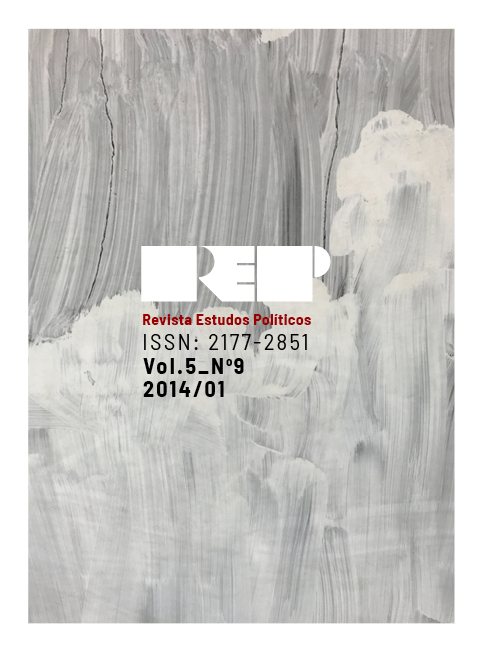Habermas and the Ideia of Radical Reformism: Political Justice in the Era of Post-Socialism and the Crisis of Capitalism
DOI:
https://doi.org/10.22409/rep.v5i9.40360Palavras-chave:
Habermas, Radical Reformism, social democracy, Welfare State, Left, neo-liberalismResumo
This study undertakes an analysis of the political thought of Habermas by examining the concept of radical reformism. The argument is conducted in two areas: (a) from the time of his first works when he was engaged in a criticism of the social-democrat project for a welfare state, Habermas argued in favor of a broadening of democratic procedures in every social sphere. This was a means of overcoming the bureaucratic nature of the State and political parties and the way the democracy of the masses is administered, and showing how this could be reflected in the economy, culture and politics; (b) from the 1980s onwards, he sought to bring about a reaffirmation of the Social-Democratic project for a welfare state at a time of crisis for social democracy and the neo-liberal hegemony. This led to the assertion of what for Habermas, was a reflective continuity of the State´s plans for social welfare and was bound up with an affirmation of what social-democracy would represent after the collapse of “real socialism”, its alternative and the theoretical-political stance par excellence of the non-Communist Western left. As a result, the current model of socio-political justice would clearly be centred on the reaffirmation of the welfare state, while the central driving-force of our democratic societies would be opposed to the economic laissez-faire policies of austerity that endowed them with legitimacy.Downloads
Downloads
Publicado
Edição
Seção
Licença
Para submeter um manuscrito, os autores devem realizar o cadastro na plataforma, fornecer os dados solicitados e seguir as orientações recomendadas. Para tanto, será necessário apresentar o número da identidade de pesquisador. Para obtê-lo, é necessário realizar o cadastro na plataforma Open Researcher and Contributor ID (ORCID).
Ao submeter um manuscrito, os autores declaram sua propriedade intelectual sobre o texto e se comprometem com todas as práticas legais relativas à autoria. A submissão implica, ainda, na autorização plena, irrevogável e gratuita de sua publicação na REP, a qual se responsabiliza pela menção da autoria.
A REP tem acesso aberto e não cobra pelo acesso aos artigos.
Orientando-se pelo princípio de que tornar público e disponibilizar gratuitamente o conhecimento científico contribui para a democratização mundial do conhecimento, a REP adota a política de acesso livre e imediato ao seu conteúdo.
No mesmo sentido, a REP utiliza a licença CC-BY, Creative Commons, a qual autoriza que terceiros distribuam, remixem, adaptem e criem a partir do trabalho, inclusive para fins comerciais, desde que se reconheça e torne público o crédito da criação original.
Para mais informações, contatar a editora através do e-mail revistaestudospoliticos@gmail.com


